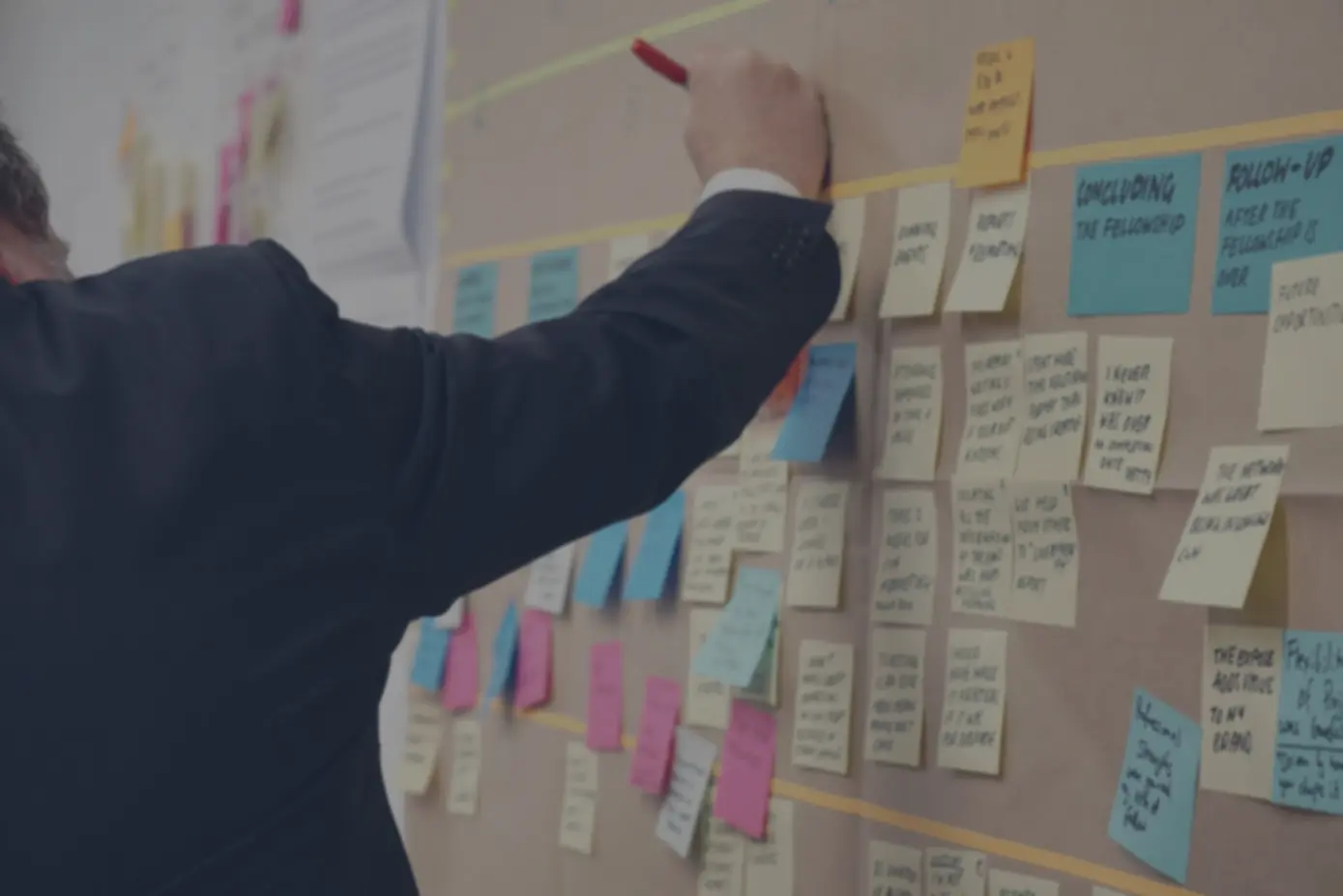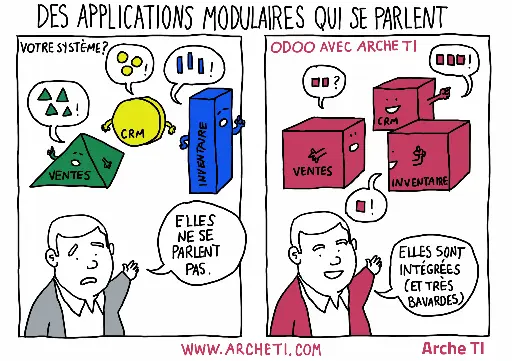What is an ERP ?
What is a CRM ?
Understand the differences between ERP and CRM.
What is an ERP?
An Enterprise Resource Planning (ERP) system, known in French as a Progiciel de Gestion Intégré (PGI), is software that centralizes all your business management needs.
Using an ERP system enables you to automate the processes you've already established.
It is the main management tool, encompassing accounting, billing, inventory management, order management, and more. Everything you might need for your business operations is included in a good ERP.
The central idea is to make as few actions as possible and to limit the need to switch between several different software programs. Here, everything is interconnected and automated at every level.
You will have valuable control over your operations: entering a purchase invoice can directly update inventory, tracking time spent on a project could automatically adjust the billing for the associated client, and you can easily see at a glance how the follow-up on a repair ticket is progressing.
The main aim of all these automatic functions is to make you more profitable, without pulling your hair out. There are bound to be applications and tools that will benefit you in Odoo, our favorite ERP.

At Arche TI, with Odoo
We work with several different customers in parallel, with simultaneous projects and several groups of collaborators with their own specialties:
With the project management application, each task can be assigned to one or more collaborators who know exactly what they need to do at any given moment.
The time spent on different tasks is planned within a project and clearly impacts the final billing.
Stages are clearly defined, and project tasks move from one stage to the next as the project progresses. The various views offered by Odoo (including a Kanban board) provide a clear overall view of the project.

A good ERP is:
Simple
Efficient
Centralized
Automated
What is a CRM?
Customer Relationship Management (CRM, known as Gestion de la Relation Client, or GRC, in French) encompasses all the actions you take throughout the process of turning a sales lead into a quote, a contract, and ultimately a long-term business relationship.
Your business is customer-driven, and the relationship you maintain with your customers is paramount at every stage. Managing all aspects of your customer relationships can be made simple with a good CRM tool.
Every step is clear: it's easy to find a contact, find out where a customer project stands, who's in charge and what the next steps are.
At Arche TI, with Odoo
Opportunities arrive through many channels, and between business cards, meetings in the field, e-mails and phone calls, it's easy to get lost:
Odoo allows you to centralize all your information in one place,
Track milestones: opportunities, qualification, pending signature, won or lost,
For each opportunity won, it's easy to retrieve quotations and orders, and manage the project's progress from the CRM,
Each stakeholder's contact details are easily accessible, and information circulates rapidly.

The result of good Customer Relationship Management (CRM)
Simplified sales tracking
Through a
well-organized database.
Better project management
To ensure nothing falls through the cracks.

In summary
...And many more !
Forget about repetitive tasks, jumping from one program to another and double entry.
No more wasted time and multiple licenses to manage. No more checking that everything has been entered correctly!
Quickbooks (accounting)
Notions (knowledge)
DocuSign (secure signature)
SalesForce (CRM)
Bamboo HR (human ressources)
PowerApps (applications)
Chargebee (subscriptions)
Lightspeed (point of sale)
Slack (internal communication)
SAP (sales, inventory, manufacturing)
Asana (project management)
Harvest (time sheets)
Zendesk (help desk)
Shopify (eCommerce)
Hubspot (emailing campaigns)
ERP and CRM are often confused, as they are closely linked: CRM is one of the tools integrated into your ERP. It is, of course, directly accessible in Odoo, our ERP of choice.
With Odoo, users replace an average of 15 software applications in a single, interconnected solution.
For example, with Odoo, you can replace:
50 000
Companies using
the system
12 000 000
users
worldwide
70+
Available
applications
15
softwares spared
on average
